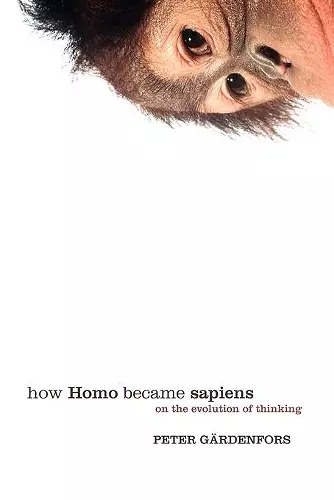How Homo Became Sapiens
On the evolution of thinking
Format:Paperback
Publisher:Oxford University Press
Published:12th Jan '06
Currently unavailable, and unfortunately no date known when it will be back

Our ability to think is one of our most puzzling characteristics. What it would be like to be unable to think? What would it be like to lack self-awareness? The complexity of this activity is striking. Thinking involves the interaction of a range of mental processes - attention, emotion, memory, planning, self-consciousness, free will, and language. So where did these processes arise? What evolutionary advantages were bestowed upon those with an ability to deceive, to plan, to empathize, or to understand the intentions of others? In this compelling work, Peter Gärdenfors embarks on an evolutionary detective story to try and solve one of the big mysteries surrounding human existence - how has the modern human being's way of thinking come into existence. He starts by taking in turn the more basic cognitive processes, such as attention and memory, then builds upon these to explore more complex behaviours, such as self-consciousness, mindreading, and imitation. Having done this, he examines the consequences of "putting thought into the world", using external media like cave paintings, drawings and writing. Immensely readable and humorous, the book will be valuable for students in psychology and biology, whilst remaining accessible to readers of popular science.
Gardenfors presents a wealth of thought-provoking information and discussion, with a well-argued viewpoint, in a clear style. * JBE, Vol. 40, No. 4 *
. . . well written and admirably succinct. Although it has an argument to make, it does so in a fair and evenhanded way. This would make a good introduction for anyone venturing into the evolution of mind literature for the first time. * Quarterly Review of Biology, Vol 79, No 4 *
ISBN: 9780198528517
Dimensions: 233mm x 156mm x 20mm
Weight: 397g
256 pages